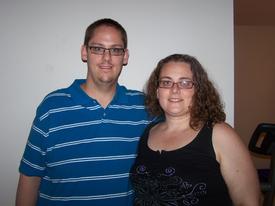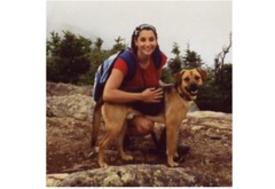All you "food scale" weigher's HEIP!!!!

Families_R_Forever
Posts: 618 Member
ADVICE PLEASE on what you do...
I posted this on my newsfeed and thought I would post it to you all too...
So at costco their Foster Farms skinless, boneless chicken breast is 4oz=100 cals. Now that I have a scale...I cooked it and weighed it and the whole breast only weighed 1oz! So I really find this hard to believe. I have been counting a 1/2 a breast 4oz. (totally was guessing) Now my ? is...do you think it wants me to weigh it before I cook it, when it is frozen, because in that case it would weigh more. Any thoughts...I mean honestly is a whole chicken breast only 25 cals??? I must be doing it wrong...
Thoughts anyone???
I posted this on my newsfeed and thought I would post it to you all too...
So at costco their Foster Farms skinless, boneless chicken breast is 4oz=100 cals. Now that I have a scale...I cooked it and weighed it and the whole breast only weighed 1oz! So I really find this hard to believe. I have been counting a 1/2 a breast 4oz. (totally was guessing) Now my ? is...do you think it wants me to weigh it before I cook it, when it is frozen, because in that case it would weigh more. Any thoughts...I mean honestly is a whole chicken breast only 25 cals??? I must be doing it wrong...
Thoughts anyone???
0
Replies
-
just go with the four ounces, it does not weigh more when frozen, it weighs the same0
-
That must be one tiny chicken breast!0
-
The chicken breasts i eat are 2oz each0
-
i put mine in as Harris Teeter - Boneless, Skinless Chicken Breast, Uncooked, 6 oz . i know that when i cook it it'll b at LEAST 2oz less than what it was raw & thawed.
frozen does weigh more so i always weigh mine thawed.0 -
I always weight my chicken after I cook it to get an accurate amount of what I am eating, if you weight and its 4oz, you cook it and its 1oz, how much chicken did you eat? You going to take cals for the part that cooked off that never got in your tummy?0
-
I always thought that food weight was counted before cooking (i.e. if you get a 1/4 lb burger, the 1/4 lb would be prior to cooking). I weigh before I cook and log it that way. Pretty sure the standard is weight before cooking.0
-
Yes weight is before cooking. Example is 2 OZ of spagetti is 2 oz dry not cooked or you would only end up with a few noodles.
I weigh everything raw.0 -
I always thought that food weight was counted before cooking (i.e. if you get a 1/4 lb burger, the 1/4 lb would be prior to cooking). I weigh before I cook and log it that way. Pretty sure the standard is weight before cooking.
But if 4oz of consumed beef is 200 cals, you take 4oz and cook out 1oz of fat etc and end up consuming a post cooked weight of lets say 3oz and eat that, why would you count cals for part you didnt eat?0 -
weigh it raw, but thawed. when you cook it you aren't "cooking out calories that you don't eat" so ignore the post from jrich10
-
In my weigh experience a large (fresh not frozen) cooked chicken breast (with tender still attached) is about 5 oz.0
-
weigh it raw, but thawed. when you cook it you aren't "cooking out calories that you don't eat" so ignore the post from jrich1
How do you figure? You are counting calories for food that is cooking off and not being consumed?0 -
weigh it raw, but thawed. when you cook it you aren't "cooking out calories that you don't eat" so ignore the post from jrich1
How do you figure? You are counting calories for food that is cooking off and not being consumed?
because the ntritional values on labels and in data bases are for uncooked meat.0 -
Some searching on our board, from when asked before -
http://www.myfitnesspal.com/topics/show/99736-weigh-meat-before-of-after-cooking0 -
weigh it raw, but thawed. when you cook it you aren't "cooking out calories that you don't eat" so ignore the post from jrich1
How do you figure? You are counting calories for food that is cooking off and not being consumed?
in the case of chicken, there is not pieces of chicken being cooked off and flying away into nothingness. the weight will go down after cooking partially due to water loss. and just to restate, the nutritional values are for uncooked meat.0 -
weigh it raw, but thawed. when you cook it you aren't "cooking out calories that you don't eat" so ignore the post from jrich1
How do you figure? You are counting calories for food that is cooking off and not being consumed?
because the ntritional values on labels and in data bases are for uncooked meat.
How do you know this for sure? It doesnt specify0 -
weigh it raw, but thawed. when you cook it you aren't "cooking out calories that you don't eat" so ignore the post from jrich1
How do you figure? You are counting calories for food that is cooking off and not being consumed?
because the ntritional values on labels and in data bases are for uncooked meat.
How do you know this for sure? It doesnt specify
we know from experience. 4 ounces of chicken breast (raw) is 120 cal. plus, my mom is a registered dietician and i was taught a lot about nutrition growing up.0 -
Good question! I weigh mine after I cook it. I hope this is right. I look for the calories if cooked food too though!? So grilled chicken is = X amount of calories. I have never looked up raw chicken before.0
-
Maybe thats why my weight comes off so slow?
I have always weighed it after it was cooked, so maybe I am actually eating MORE calories than I thought?
Good thing I always have a couple hundred calories left over.....
Good Topic
P.S. I just found this at www.peertrainer.com
Weighing Food
I've been a Weight Watchers member for nearly 30 years. They were perhaps the first weight loss plan that emphasized weighing your food, and it became a habit for me.
When you see references to weight when looking at portion sizes, it means cooked weight - not raw. But how do you know how much to buy/cook in order to have the desired portion size? Four ounces of raw meat/fish/poultry will yield approximately three ounces, when cooked. Eight ounces raw will yield approximately six ounces, and so forth. It's a good idea to weigh again after cooking, but I don't always. If I buy an eight-ounces fish fillet for example, I call it two three-ounce portions.
The experts used to tell us to weigh everything, because our eyeball estimates tend to become less accurate and we'll add in extra calories. Most of the nutrition experts now encourage the use of several good rules of thumb that people who don't like to weigh or don't have their scales with them can apply. For instance, three ounces of cooked meat will be about the size of a deck of cards.
I've added a link to a very good site that gives eyeball estimates of portion sizes for all kinds of foods.
I do both. I have a professional-grade food scale in my kitchen that will weigh in grams or ounces, from as little as one gram to as much as 11 pounds. I use it when I need to be very precise for some recipes, or when I'm testing new recipes I've created. It also serves to recalibrate my own eyeball estimates and helps keep me on track and accurate.
I like to lay a piece of clear plastic wrap over the scale when I weigh raw meat products. That lets me see the display, and I don't have to wipe/sanitize the surface afterwards to avoid cross contamination. Saves a lot of time and keeps my kitchen safe and sanitary.
Interesting.0 -
Yes it HAS to be before thawed...I just thawed one and it was almost 4 1/2 oz. SO the difference was big! THANKS EVERYONE!0
-
I weigh my meats after I cook them too. Cooking burns off the fat and water, so in my experience, it usually weighs less afterwards. It has worked for me. And IMO, if we are only talking about a dirfference of one or two ounces, then so what? Unless you are talking about fatty brisket or pastrami, then it is only going to amount to a few measly calories more. When all is said and done you are most likely still eating far less than you did before you started keeping track on MFP.0
-
Ok so I looked up on Weight Watches and they say you should weigh your meat BEFORE cooked. So when you cook a 6 oz piece of meat it comes to about 3 oz, and an 8 oz comes to 6 oz when cooked. But since Weight Watches is the brand that started this weighing your food thing I would believe that!0
This discussion has been closed.
Categories
- All Categories
- 1.4M Health, Wellness and Goals
- 398.2K Introduce Yourself
- 44.7K Getting Started
- 261K Health and Weight Loss
- 176.4K Food and Nutrition
- 47.7K Recipes
- 233K Fitness and Exercise
- 462 Sleep, Mindfulness and Overall Wellness
- 6.5K Goal: Maintaining Weight
- 8.7K Goal: Gaining Weight and Body Building
- 153.5K Motivation and Support
- 8.4K Challenges
- 1.4K Debate Club
- 96.5K Chit-Chat
- 2.6K Fun and Games
- 4.8K MyFitnessPal Information
- 12 News and Announcements
- 21 MyFitnessPal Academy
- 1.6K Feature Suggestions and Ideas
- 3.2K MyFitnessPal Tech Support Questions











